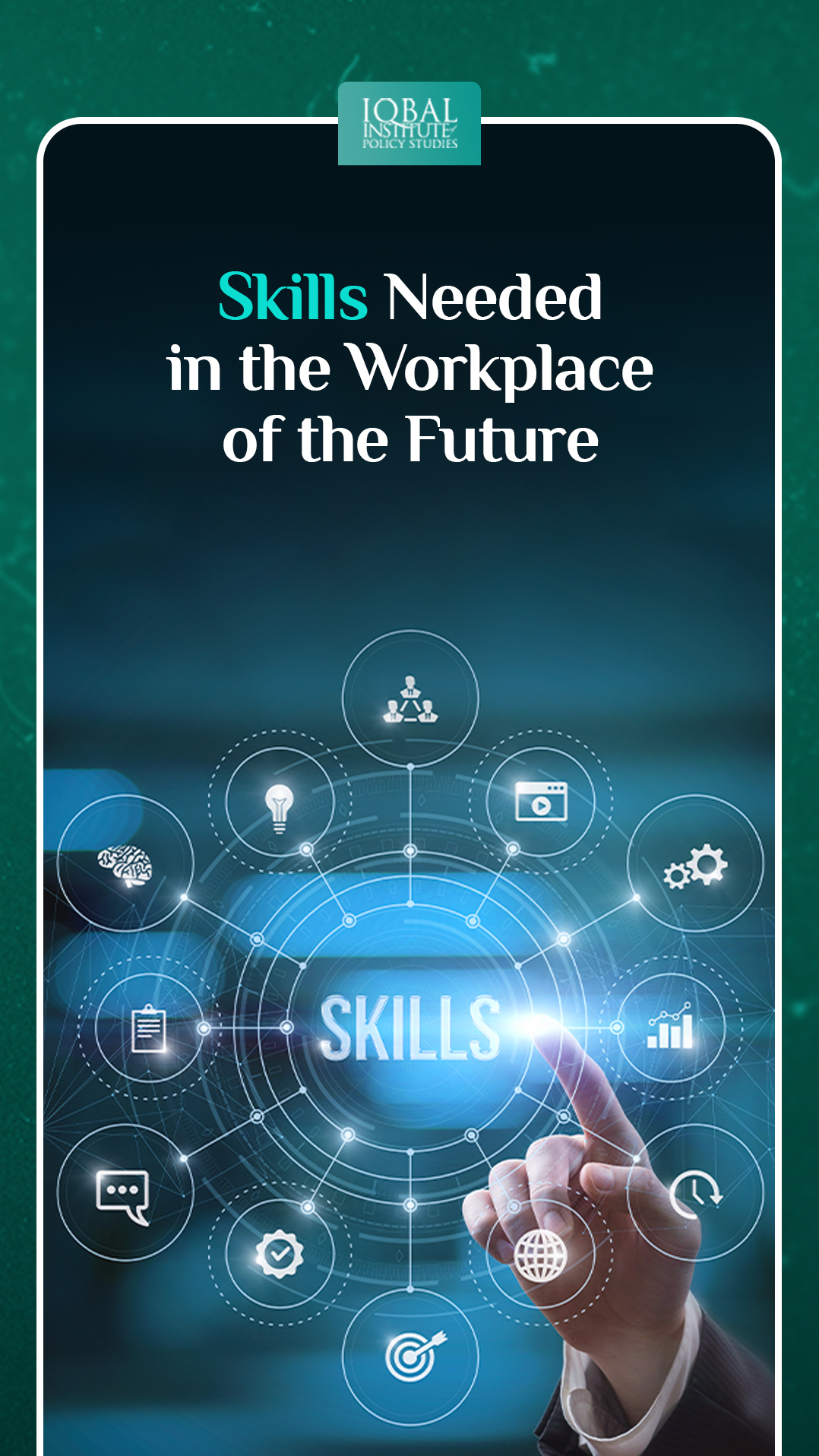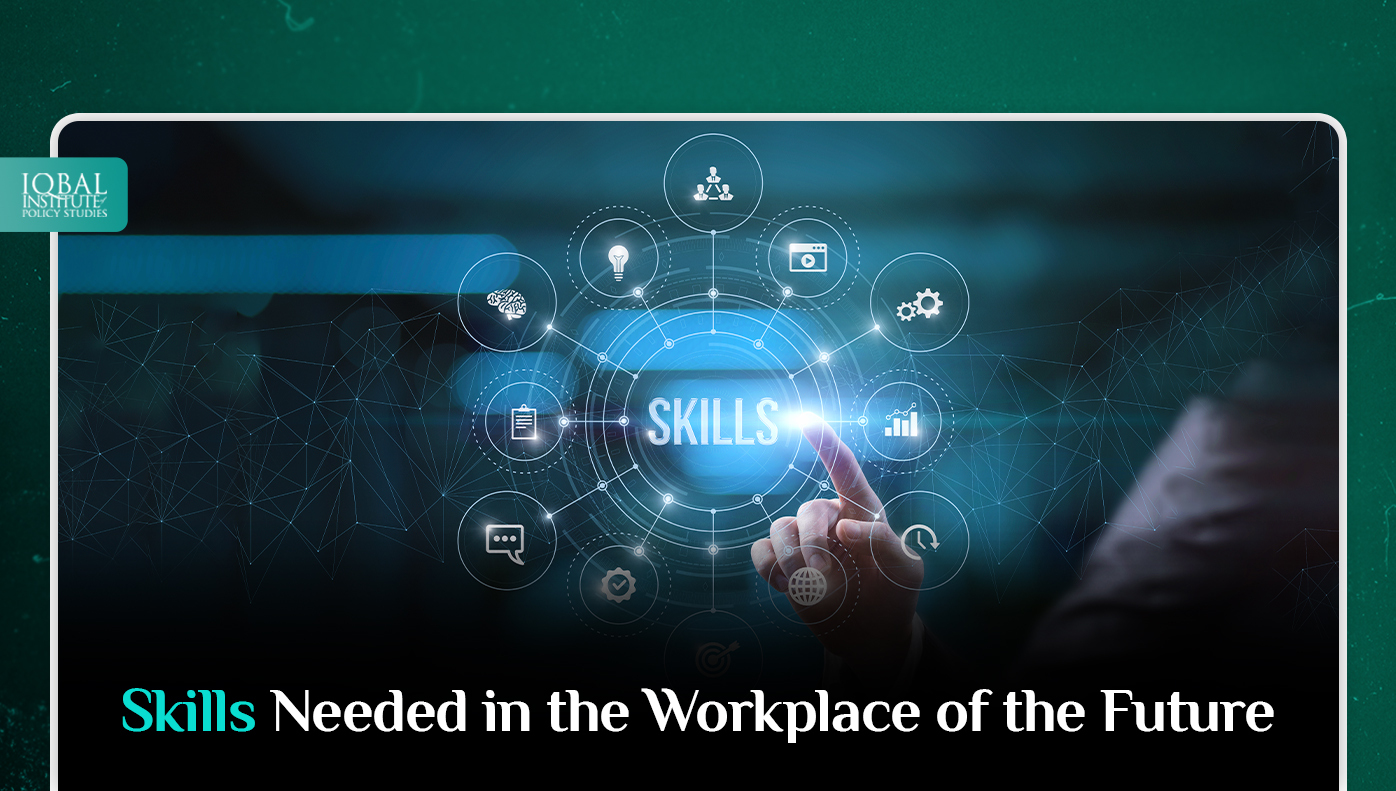Digitisation is transforming the world of work. Developing and enhancing new skills and capabilities are vital for workers to thrive in the future, driving economic success, individual well-being and societal cohesion. The global shift to a future of work is caused by an ever-expanding cohort of new technologies, new sectors and markets, and more integrated global economic systems. These widespread and profound changes brought about by digitalisation are dispensing unmatched opportunities for value creation and capture, as well as a fount of significant risk factors. As a result, today’s workforce will need to master new skills and develop the ability to adapt constantly as new professions arise. However, this advancement may bring about the looming possibility of mass job displacement, untenable skills shortages and a competing claim to the unique nature of human intelligence now challenged by artificial intelligence. Therefore, policymakers must take stock of where their nations stand today and start-up initiatives and plans aimed at promoting widespread digital adoption and usage. It will equip people to deal with the ongoing shift in workplace mindsets and prepare for the abrupt onset of technological advances in the future.
What are the Skills of the Future?
Analysis of 228 million job ads revealed that one in eight of all job postings listed one of the following skill sets as a requirement. In 2021, the five-year growth rate for these four skill sets was 122%, as opposed to the average skill’s 10% growth rate during the same time (World Economic Forum, 2023).
Artificial Intelligence (AI)
Artificial intelligence (AI) is one of the world’s most significant technologies believed to impact how businesses will be conducted in the future. AI, the fastest-growing of any skill set, has grown at a rate of 370% over the past five years (The Business-Higher Education Forum, 2022). The goal of artificial intelligence is to develop the science and engineering of intelligence to build machines that are similar to humans. This includes creating machines with various human-inspired abilities, such as learning, communication, perception, planning, and reasoning. Other human-inspired skills include the ability to move and manipulate objects. AI is expected to have a major economic impact because it will steadily increase the number of functions that computers can perform faster, cheaper, or better than humans. For instance, summing up a retail store’s transactions.
When implementing AI and other information technology tools today, many organisations look for ways that technology can replace human labour while continuing to perform the same tasks as before. Automated menus in telephone customer service systems and self-service check-out kiosks in stores are two examples. This could supersede great numbers of human workers in the future. Hence, there is a substantial need for governments and other parts of society to assist in smoothing this transition by encouraging the widespread adaption of AI, particularly for those whose old jobs have been disrupted and who are unable to easily find new ones. In this way, AI will enable the disclosure of new industries, creating more employment than is lost to technology.
Cloud Computing
The fifth-fastest growing skill set is cloud computing, which is in demand in roughly 40% more industries than artificial intelligence (The Business-Higher Education Forum, 2022). Cloud computing has completely transformed the world, becoming one of the most powerful forces on the market today. Its development has been tremendous, with it progressing from “upcoming technology” to “industry standard.” This innovative revolution is an essential component of software development, and it is quickly becoming a requirement for modern businesses as they strive to increase the agility of their business strategies. For instance, the cloud will help provide the digital infrastructure for the future of major cities. The chance of cloud computing being adopted by 2025 is 17% (World Economic Forum, 2020).
Business operations can be performed quickly and easily without making a large upfront investment, thus boosting efficiency and productivity. Lenovo is collaborating with tertiary institutes in China to train vocational students in high-tech fields such as cloud computing, using practice-based curricula, practitioner-led instruction, and professional certification (World Bank Group, 2019). Workers whose skills have been mastered by such technologies will have less to offer the future job market. However, the cloud revolution will have a positive impact on the workforce of the future as long as affordable training options are available. Thus, it is essential to implement forward-looking plans that involve cloud adoption. That means building skills in both current and future employees, which requires education and training.
Product Management
Product management skills are one of the fastest-growing, highest-demand emerging skill sets. Behind every software update, smartphone release, or self-driving car launch, there is a product management professional. Companies would fall behind the competition if they did not have these constantly evolving products. Demand for Product Management has grown at the rate of 72% over the past five years (The Business-Higher Education Forum, 2022). The popularity of product management is because this skill set is least sectorally specialised than other skill sets. Moreover, the presence of regional and international players has led to the highly fragmented and competitive nature of the product management market. As a result, companies engage in mergers and acquisitions and product innovation to maintain their position in the competitive market. The Product Management Market is expected to reach USD 31.84 billion by 2025 (Report Linker, 2020). As companies become more product-driven, the role of project management is evolving, with consumer-centric thinking outpacing traditional business metrics. Thus, constant upskilling and reskilling are of utmost importance if workers want to stay relevant in the workplace of the future.
Social Media
The demand for social media expertise has been growing substantially. It has become more than just a communication medium as it has evolved into an integrated tool that lets organisations manage social, financial, and legal transactions. Social media marketing skills are diverse and marketable. People who comprehend digital marketing strategy and are proficient in social media will continue to be in demand. For example, jobs requiring Social Media expertise with eight years of experience pay over $120,000 annually, only slightly less than jobs involving Cloud Computing expertise with equivalent experience (The Business-Higher Education Forum, 2022).
Furthermore, Technology and online retail will continue to grow. Thus, the need for social media skills in future workplaces will be greater than ever. For instance, today, eCommerce stores are popping up everywhere, and business owners are looking for experts who are familiar with social media accounts. Also, japan’s pharmaceutical company has designed a novel system for detecting and treating adult depression using AI, social media, and human facilitators (Malone, Rus, & Laubacher, 2020). An organisation will likely lag behind and lose out to rivals if it doesn’t have a social media presence. However, preparing for these jobs entails far more than simply learning new skills. Workers will need to build a broader portfolio of technical and foundational social media skills.
The Way Forward
Develop reskilling tracks in community college programmes and online micro-degree options that match future skill demands.
Offer assertive communication programmes that inform displaced workers about their reskilling and placement alternatives, with the goal of inspiring them to envision new career paths.
Increase federal and state government investment in post-secondary education and reskilling/training programs to make the workforce adaptable to technological advancements and compatible with future skill requirements.
Reshape the legal and regulatory framework that governs work to encourage job creation and to adapt to other disruptions created by AI.
Identify personal and intrateam skill gaps and devise strategies to close them through specialisation, training, or new hires.
Eliminate seniority-based career advancement and place more emphasis on the range and depth of skills that each team member brings to the table.
Conclusion
The skills required for workers to succeed in the future digital world are gradually coming into force. These skill disruptions are driving massive changes in the workplace, leading to innovation, building worker and organisational capacity, boosting productivity, and improving compensation and opportunities for advancement. In contradiction, such high-demand skills may also cause a recession, further aggravating the unemployment issue in developing nations. Therefore, it is imperative for governments to adopt intelligent policies and foster training programs that make the workforce adaptable to future technological changes and proficient in skills which are in high demand.
References
Malone, T. W., Rus, D., & Laubacher, R. (2020, December). ARTIFICIAL INTELLIGENCE AND THE FUTURE OF WORK. MIT Work of the Future. Retrieved from https://workofthefuture.mit.edu/wp-content/uploads/2020/12/2020-Research-Brief-Malone-Rus-Laubacher.pdf
Report Linker. (2020). Product Information Management Market – Growth, Trends, and Forecasts (2020 – 2025). Retrieved from https://www.reportlinker.com/p05974122/Product-Information-Management-Market-Growth-Trends-and-Forecasts.html?utm_source=PRN
The Business-Higher Education Forum. (2022). How Skills Are Disrupting Work: The Transformational Power of Fast Growing, In-Demand Skills. Retrieved from https://static1.squarespace.com/static/6197797102be715f55c0e0a1/t/6388b6daaae0b3075d6c7658/1669904091972/SkillsDisruption_Final_2022.pdf
World Bank Group. (2019). The Changing Nature of Work. Retrieved from https://documents1.worldbank.org/curated/en/816281518818814423/pdf/2019-WDR-Report.pdf
World Economic Forum. (2020). The Future of Jobs Report 2020. World Economic Forum. Retrieved from https://www3.weforum.org/docs/WEF_Future_of_Jobs_2020.pdf
World Economic Forum. (2023, January 10). These are the 4 skills you’ll need in the workplace of the future. Retrieved from World Economic Forum: https://www.weforum.org/agenda/2023/01/skills-jobs-future-workplace/?_gl=1*1wle5bx*_up*MQ..&gclid=CjwKCAiAuOieBhAIEiwAgjCvcmh46hFb7YUXyIgTMudzBeL4YBZXYFtv7bSrz_K3tOyFKJiOl50GqhoC_kwQAvD_BwE



Leave a Reply